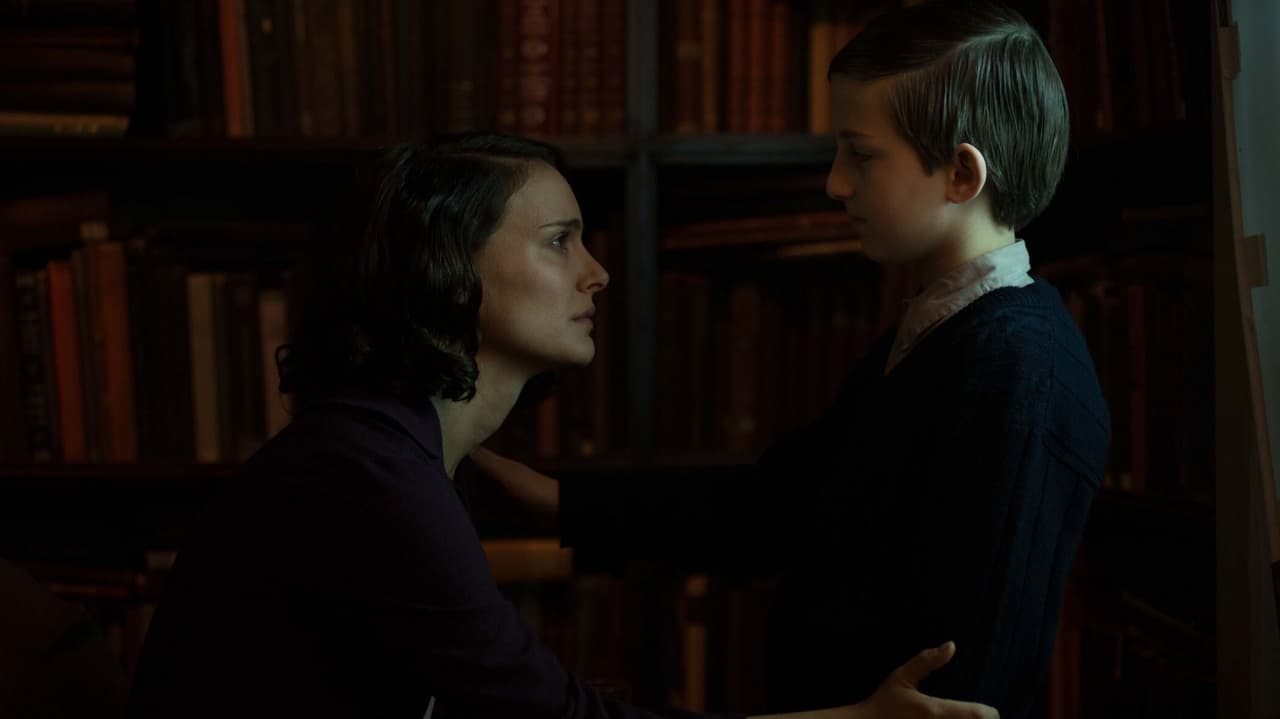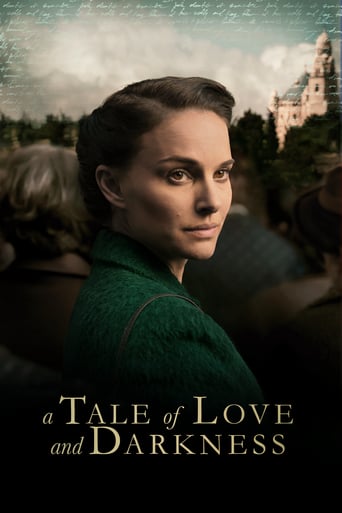

I have not read the book upon which the film was based, so my comments are purely on the film. Maybe fifteen or twenty minutes in I was thinking, okay, what's going on here? Why should I care about this story and these characters? As I continued to watch my caring about the characters and their story increased, until, by the end, I was very moved and cared deeply. At some point beyond halfway, I thought the greatest feat here is the creation of mood, not only of the characters but of the whole world presented in the film, and then, transferred to me, by virtue of my watching and listening to it. It's a visual and auditory feast.A lot happens in this film, both personally and historically, but ultimately what I was left with was a sense of a man recalling his childhood and the emotion that he carried with him through his life. As other reviewers have indicated, it's a poetic film, and I wound up absorbing it the way I might a poem. And in that way, it worked beautifully.
... View MoreThis film is truly beautiful. I was hesitant to see this film. I thought it was going to be a love song to the Jewish struggle in Jerusalem, but it was not very political at all. It does include the pure optimism of the Jewish people once they are given their own free state. There is also some beautiful narration describing the conflict as unfortunate and tragic. Instead, we are given a beautiful film of the personal story of a boy's relationship with his loving, troubled mother. She tells him different stories throughout the film, each one containing its own seed of wisdom. I was really impressed with the beauty of the dialogue. This is a film that can appeal to people who love language, but the beauty of each shot is also one of its strengths. A very unique film, filled with beauty and darkness (and love).
... View MorePlot was all over the place, (if you can even call it a plot).This is just a vanity project for Natalie Portman. A very bad one at that.It's the film equivalent of miley cyrus "dead petz" project.Both Artists wrote, acted, and direct their own project, but just because a artist has complete creative control doesn't mean it will be good. Her acting is was very null in this. I can't recommend this movie simply because of all the mistakes and bad editing. Do yourself a favor and watch a REAL biography, not some self- indulgent project by a bratty elitist.
... View More"It's better to be sensitive than to be honest". It is no surprise that first time writer/director Natalie Portman is taking a Pro-Jewish stance in her newest film A Tale of Love and Darkness. A celebrated novel by one of, if not the most prolific novelists hailing from Israel, Amos Oz; a last name that literally translates to "hope" in Hebrew. Oz is a novelist whose book serves as a large and hopeful story towards conflict flooding the Middle East. Sadly for Portman, whose keen eye and collaboration with many talented directors, has allowed her to visually over-stylize her film with beauty and tones of dark and tragically elegant glimpses, without much of a handle on narrative and storytelling. A Tale of Love and Darkness is more dark than it is loving; seemingly with all but mere glimmers of hope for its small group of main characters. As the film begins, we are aware that an older Oz is telling a story, his story more specifically, essentially providing a voice-over for his novel. Narrating his words and recounting his childhood years after the Second World War, during a time Israel is under British mandate, a young Oz navigates a barren and soulless country while the politics and ramifications of war break down all around him. His only salvation are his zestful mother and realistic father. His mother Fania (Portman) and father Arieh (Gilad Kahana) are not wealthy. Ariel is an aspiring writer and librarian, Fania, a dedicated housewife who we understand leaves a life of wealth for love and motherhood, is a dreamer. Although she always imagined marrying a rebel/poet/farmer, Fania's expectations are always challenged against her realities.The illusions and aphorisms within Fania's head are all stories of dread, drearily setting the tone for the mentality of many people during this time. It is when Fania begins her monologues about these parables that Portman's direction was at its strongest. Perhaps highly lit and stylized to their full potential, these stories provided audiences with a very real and optimistic promise of resolution and sometimes painful acceptance of war and conflict, yet so elegantly presented. Luckily, these stories account for a hefty portion of the film and drive the not-so-long runtime through smoothly.There is no surprise that throughout the course of Portman's adaptation of Darkness, Oz is fully in love with his mother and her relentless attitude. Portman's cinematic take on the novel sadly disconnects her audience from the deep relationship between a young Oz and his living and loving mother Fania. Plagued with sleepy fade outs, incoherent scenes developing a young Oz and a highly depressed Fania, mixed with a blend of illustrious illusions and parables, pushed with a dash of Arieh's involvement with the family, Darkness is a dimly lit tragedy filled with hardly any love and mostly resent. Much like her character Fania, the light that so easily gleamed from her eyes and into the lives of other characters surrounding her, Fania's light slowly fades, bulldozing her character into a state of depression.Portman is a dynamic actress with a very strong political voice when it comes to many of the conflicts happening in the Middle East today. As a recent Oscar winner and Harvard graduate with an articulate and respectable celebrity presence, it is difficult to imagine many critics and film reviewers giving scathing reviews for a piece of work that isn't all that good. Portman's efforts behind and in front of the camera are very admirable; her promise as a director is highly confident and most of all, her content is riveting, just not in this film.Darkness is a film that toys with the failed promises of youth, speaks in a cocky and overstuffed tone of ethereal Hebrew that fails to connect its audience to the words and highly complex fantasies running through Oz's and Fania's head. Poetic, tragic, benign with its potential perspective to show a very unbiased side of the Israeli/Palestinian conflict, Portman's feature directorial and writing debut is a tale of much promise.Portman may have tried to show the most innocent and bare examples of the conflict through scenes between children; one involving a dangerous swing, another involving children in a school playground. As such it is no surprise that the new director succeeds at very basic and simple action/reaction scenes. Sadly however, while Darkness comes to a conclusion, Oz's redemption from childhood to youth is never really seen or appreciated. Instead, audiences are left with a handsome and enlightened youth whose promise as an affective and politically conscious presence is spoiled in the beginning scenes of an older and wiser voice-over character. Editing is surely not one of Darkness' strong suits.Portman is keen on showing that violence and conflict have no age limits or boundaries; it is unwavering and unkind to gender and race. Wholeheartedly, A Tale of Love and Darkness attempts to show us the light. The unfortunate reality, however, is that the lights always seem to be turned off.
... View More